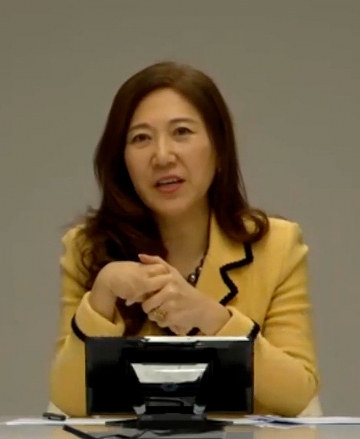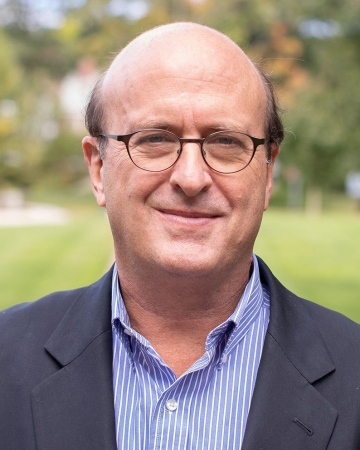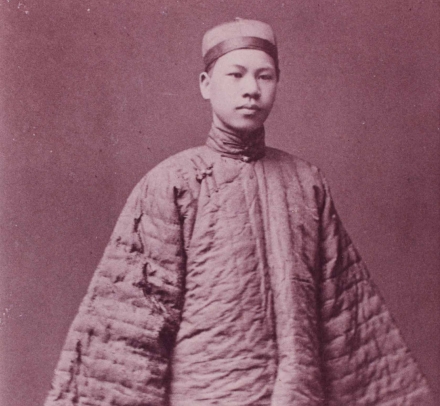Celebrating Hong Yen Chang 1886 and Columbia’s Leadership in Chinese Legal Studies
At an Alumni of Color event honoring the life and legacy of the Law School’s first Chinese graduate, participants underscored the need to support Asian and Asian American law students.
More than 150 alumni, students, and faculty gathered on April 14, 2021, for a virtual event to reflect on the life and legacy of Hong Yen Chang 1886. As part of the Law School’s Alumni of Color series, speakers also touched on the importance of the role of the Hong Yen Chang Center for Chinese Legal Studies in supporting greater understanding between the United States and China. (Watch the full event above.)
In December, Gillian Lester, Dean and Lucy G. Moses Professor of Law, announced the naming of the center in honor of Chang, the school’s first Chinese graduate, who later became the first Chinese American to be admitted to the bar. After practicing law in New York for two years, Chang moved to California, where he was denied admittance to the state bar by the state Supreme Court on the basis of his race. That injustice stood until 2015, when the court overturned the ruling and admitted him posthumously.
The panel discussion, led by Benjamin L. Liebman, Robert L. Lieff Professor of Law and director of the Hong Yen Chang Center for Chinese Legal Studies, included Timothy A. Steinert ’89, senior advisor of the Alibaba Group; Wei Christianson ’89, CEO of China and co-CEO Asia Pacific of Morgan Stanley; and student Annie Xie ’21. They were joined by attorney Rachelle Chong, the first Asian American member of the Federal Communications Commission and the great-niece of Hong Yen Chang, and Gabriel “Jack” Chin of the University of California, Davis, Law School, who led the effort to admit Chang to the California bar.
The Hong Yen Chang Center for Chinese Legal Studies, the first academic center of its kind in the United States, was founded in 1983 by R. Randle Edwards, Walter Gellhorn Professor Emeritus of Law. The center has produced influential scholarship, fostered scholarly exchanges between China and the United States, and trained generations of students in Chinese law. During the event, the participants discussed what the center has meant to them, the importance of Chang’s legacy, and the urgent need to support Asian American Pacific Islander communities.
A century after Chang graduated, Christianson was among the first students from mainland China to study at Columbia Law. “There was a huge cultural difference” for Chinese students, recalled Christianson, who nonetheless has “quite great memories and a lot of great stories.” She credits that positive experience in part to Edwards, the center, and the Journal of Asian Law. “Most importantly, we had this wonderful student body that was totally embracive of who we are and showed tons of respect towards us,” Christianson said. Her fellow students shared notes, invited her to join study groups, and attended brown-bag lunches organized by Edwards for Chinese-speaking students—a surprising number of whom were white, she recalled, noting that that fact “speaks loudly about the diverse culture and open-mindedness of Columbia Law.”
Steinert, whose generous support led the effort to name the center, said that Chang’s life story “symbolizes so much of what is good and what is bad and can be improved in the United States.” While Chang faced tremendous racism, he was someone “who took the risk to come to the United States and succeeded. I am incredibly proud to be part of the Columbia community who helped that happen. I also want to re-emphasize and commemorate what, 100 years later, Columbia has continued in his legacy, in the study of Chinese law, in the promotion of [cross-border] legal studies.”
Honoring Chang by naming the center after him is a way to mark the “trailblazing” of Asian students in the United States, Xie said. But, she added, at a time when violence against Asian Americans has spiked, “I hope that more of our community can come to recognize that this is an issue impacting our students. . . . I think perhaps we don’t fully appreciate these kinds of unique barriers that Asian Americans experience in society.”
To close the event, Liebman asked Chong to envision what her great uncle might have done had he graduated from Columbia Law in 2021 instead of 1886.
“His motto was definitely, ‘Never give up,’” she said. “He would have looked at the situation and decided, ‘Where do I go to help the most? . . . Where can I make the biggest impression given my ability to practice law, given the language skills that I’ve developed, and given the fact that I have a foot in one country and a foot in the other, and I understand both? So where can I find the common ground?’”
About the Alumni of Color Initiative
The Alumni of Color initiative was established in 2016 under the leadership of Dean Gillian Lester and George Madison ’80. Through annual events with alumni speakers, the Alumni of Color committee works to build community and celebrate the accomplishments of alumni of color. As part of the initiative and with support from alumni, the Law School has established the Eric H. Holder Jr. Scholarship Fund, which provides tuition support to students of color.





